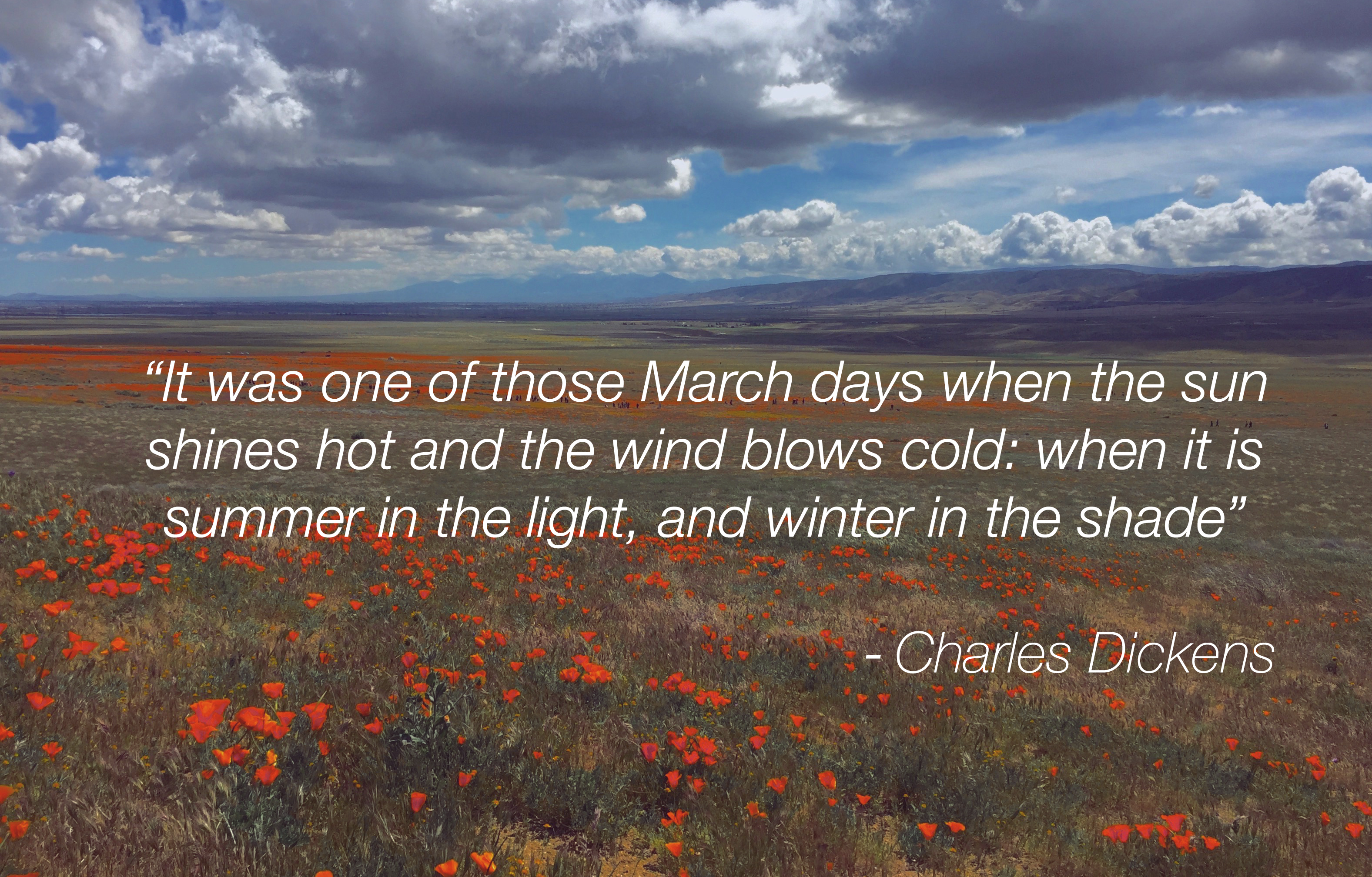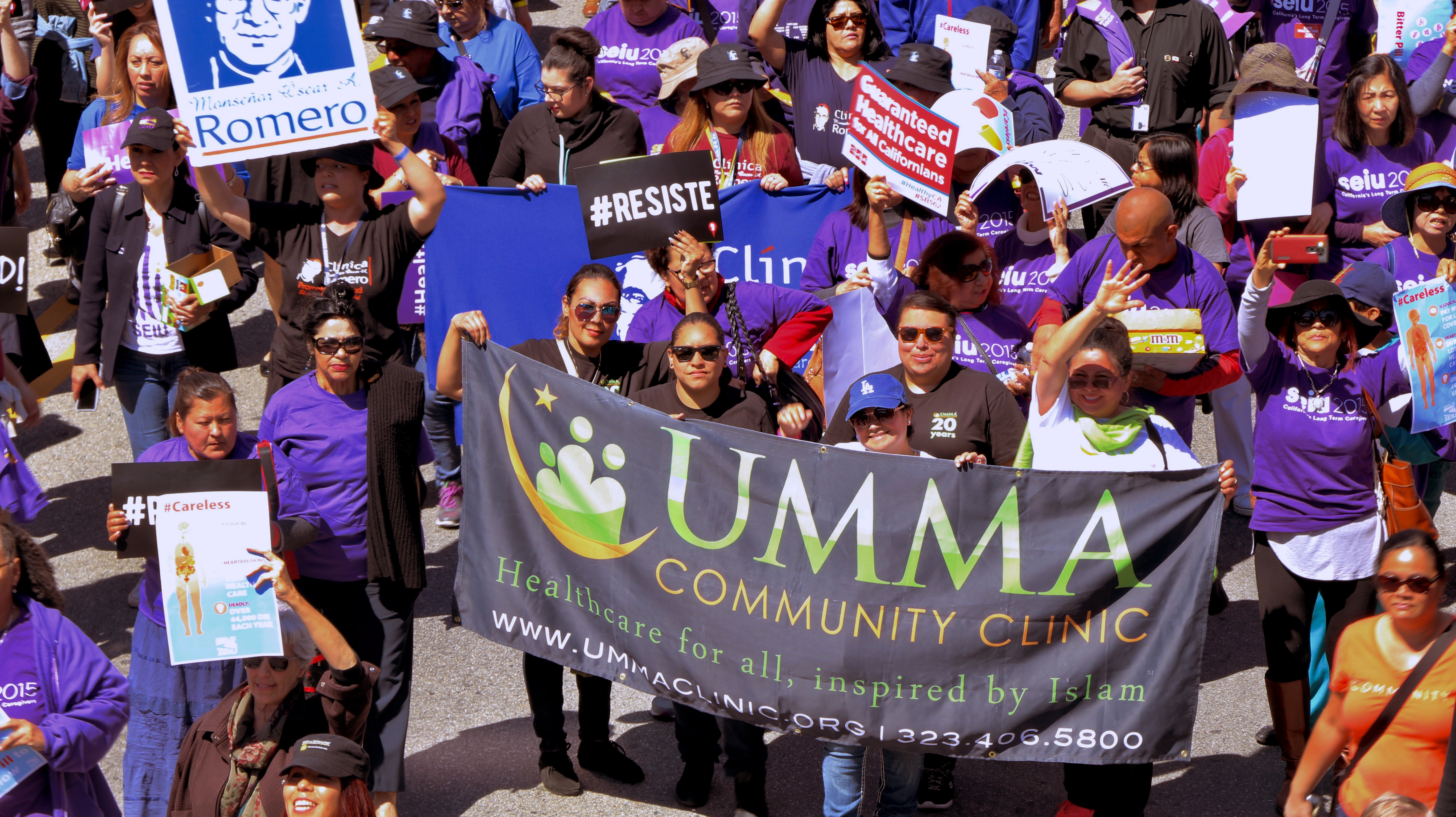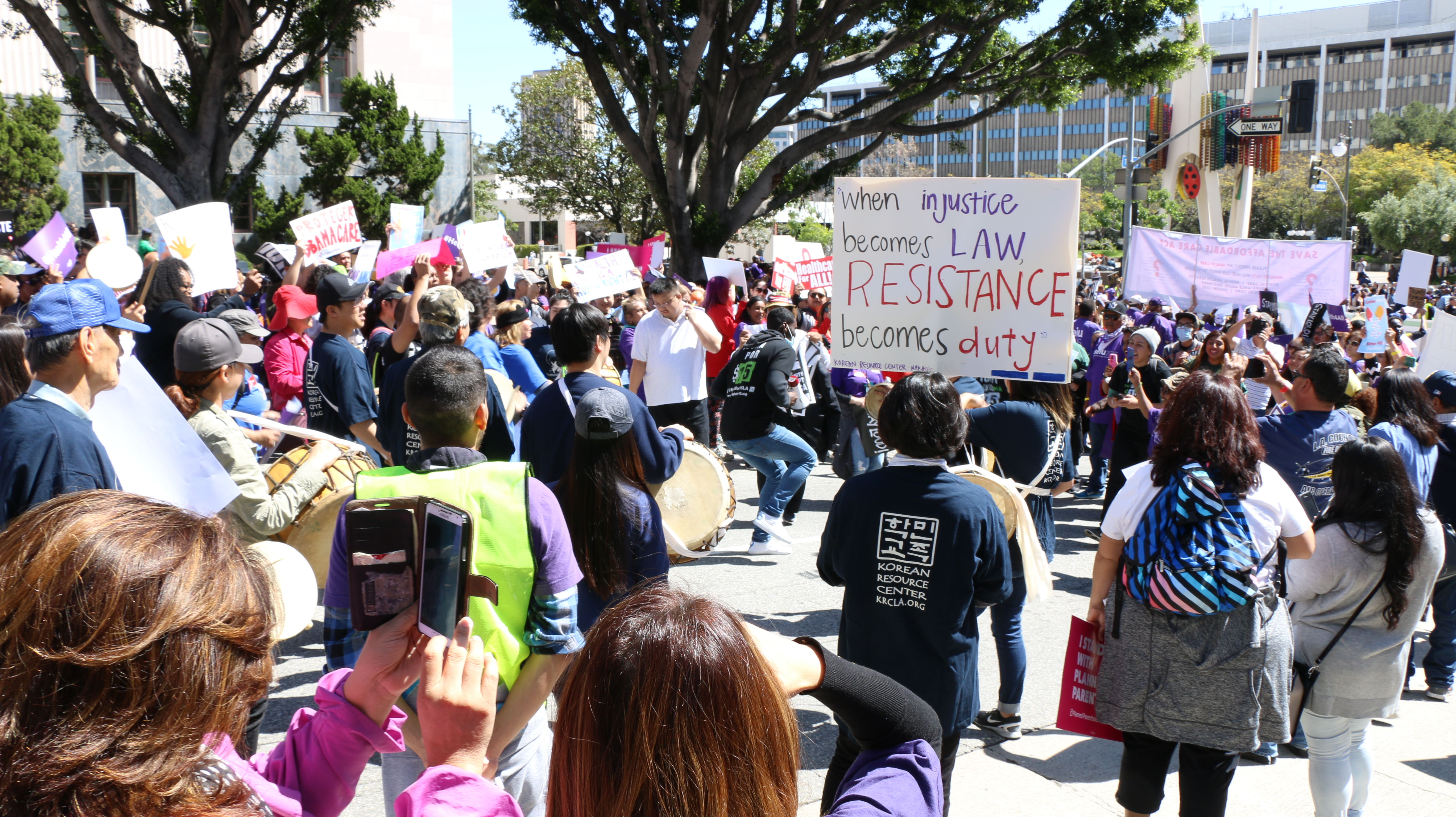Perseverance in a Time of Change


If there was a month that was a metaphor for the current uneven temperament of our nation, it would be March with its notorious reputation of roaring in like a lion, and receding like a lamb. Tumultuous March Madness with its heartfelt rivalries and intense competition inspires and energizes basketball fans, the Spring Equinox arrives and we adjust to new amounts of daylight, and the winter chills melt away into warming trends and blossoming flowers. It is a time of change.
March also marks the time leading up to the 1992 civil uprising in Los Angeles that has come to be known as the Rodney King Riots, the watershed event that catalyzed the creation of UMMA, and re-awakened our sensibilities to the social impact of inequity. And again this March, we have seen the question of equity emerge once more as part of the national discourse, particularly in regards to the Affordable Care Act (ACA).

UMMA Community Clinic staff march to save the Affordable Care Act in downtown Los Angeles alongside Los Angeles community health centers, medical professionals and community members.
As March began, the end of ACA was contemplated by lawmakers, debated in the media, and uncertainty about its future left much of the public in a state of confusion and trepidation.
As March draws to a close, ACA still remains the law of the land, but the failure to pass its proposed replacement or initiate its repeal has left the world of public health in a holding pattern, requiring an even higher degree of vigilance as new budget proposals have placed public health funding and numerous associated programs in jeopardy.
Working for health equity in the instability of such an environment is not a simple matter. Perhaps it is best to note that the March birthstones are aquamarine and bloodstone, symbolizing courage, and from these we must draw strength and persevere, remaining steadfastly committed to social justice and high quality healthcare for all, regardless of the ability to pay. We must continue to acknowledge that investment in equitable communities is a net positive for society, and what we model in our local community is what we would wish for all our fellow citizens.
In “Communities in Action: Pathways to Health Equity,” released in January 2017 by the National Academies of Sciences, Engineering and Medicine, authors described examples of community-based solutions, all of which share three key characteristics:
- Increasing community capacity to mold and impact outcomes
- Making health equity a vision shared at large
- Enabling multi-sector collaboration.
We, at UMMA, truly believe this is the pathway forward. In a political climate where pundits and politicians speak about “entitlements” when they should be talking about “human rights”, we thankfully have seen an upswing across the country in activism focused on legitimizing the idea that equitable access to healthcare is not an option, rather a requirement for a civilized society.

A mother helped by local Community Health Centers shares her story at the Save the Affordable Care Act march in Downtown Los Angeles, while Jonathan Borofsky’s “Molecule Man” statue seems to reflect bipartisan struggle.
Sadly, there are far too many legislators and political representatives that, as observed in a Chicago Sun Times editorial, “think our social responsibility to each other begins and ends with braking for pedestrians at red lights”. Consider the fact that the attempt to replace the ACA failed, not because it was considered too harsh, rather a significant faction of the GOP found that it did not strip away enough basic services, such as maternity care and mental health care.
Any health care strategy, be it ACA, expansion of Medicaid, or some well-conceived alternative needs to include coverage for prescriptions, hospital care, pregnancy, maternity, and newborn care, mental health and substance abuse services, rehabilitation services and devices for people with disabilities, preventive and lab services, and dental care – these are among the many things that constitute delivery of equitable healthcare. We must pay particular attention to preserving preventative services, as this is where true health equity begins.
The Kaiser Family Foundation has reported 36% fewer uninsured women had a mammogram in the last two years, and uninsured women were 30 to 50% more likely to die from the disease. Women who lacked insurance were also three times less likely to have had a Pap smear in the last three years and had a 60% great risk of late-stage cervical cancer. Cervical cancer is a preventable cancer. The later cancer is diagnosed, however, the greater the risk of death. Disease morbidity and mortality are at stake here.
Bayard Rustin, a hero of the Civil Rights Movement once said, “If we desire a society of peace, then we cannot achieve such a society through violence. If we desire a society without discrimination, then we must not discriminate against anyone in the process of building this society. If we desire a society that is democratic, then democracy must become a means as well as an end”.

“When injustice becomes LAW, RESISTANCE becomes duty”. Protestors raise their voices in support of the Affordable Care Act in Downtown Los Angeles.
Reflecting not only his firm belief that it was through social solidarity that we could rectify social inequities, but also his optimism that empathy, dignity, and common purpose would guide us.
In solidarity we must protect the most vulnerable or we are all diminished.
While ACA remains in effect, we must continue to raise our voices for those that are often muted and left to fend for themselves on the margins of society. UMMA will continue in its proud tradition of serving South Los Angeles and fighting for health equity.
While the month of March has been tumultuous and disconcerting, we must echo the words of author D.H. Lawrence, who wisely observed, “Ethics and equity and the principles of justice do not change with the calendar”.
